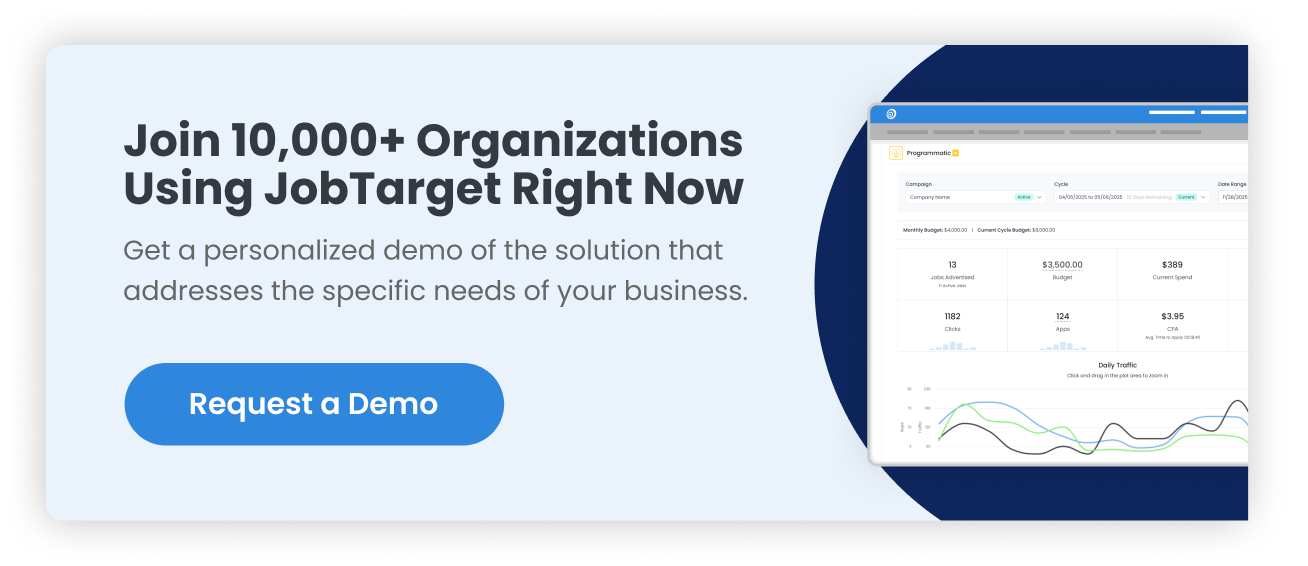As we march into an era of enhanced workplace equality and fairness, pay transparency has carved out a significant place in the conversation about equitable work environments. The increasing importance of transparency laws sends a clear message: this wave of change is here to stay.
For businesses, staying ahead of the curve is not just about compliance but also about embracing a culture of openness that benefits both employers and employees.
The Rising Tide of Pay Transparency Laws
Over the past decade, we’ve seen a massive shift toward increasing openness around pay. The start of this change traces back to efforts aimed at closing the gender pay gap and promoting equal pay for equal work. Plus, the amount of new and modified legislation, both at federal and state levels, tells us that we’re witnessing a new norm for pay practices.
The Trend That's Here to Stay
What began as a tentative step with the Lilly Ledbetter Fair Pay Act of 2009 in the U.S. has morphed into broader legislative initiatives designed to root out pay discrimination and promote fairness. The trend is unmistakable: governments are steadily demanding more transparency from employers regarding compensation.
The Office of Federal Contract Compliance Programs (OFCCP) has signaled its commitment to this philosophy, indicating that pay transparency is a priority. This clear directive should serve as a warning to all organizations that the transparency train is not just passing through—it's adding more stops.
A Roadmap to Compliance: Where Pay Transparency Is the Law
It's no secret that navigating the legal intricacies of pay transparency can be daunting. However, knowledge is power, and understanding where these laws are in effect is the first step to compliance. Let's break down the key states and municipalities that have made salary disclosure a legal requirement:
California: California's updated pay transparency law, effective September 2022, requires employers with 15 or more employees to include salary ranges in any job posting for a position in California. This applies both to direct listings and those posted by third parties. Additionally, the law expands state pay data reporting requirements to include details on the sex, race, and ethnicity of employees.
Colorado: The Equal Pay for Equal Work Act took effect on January 1, 2021, requiring job postings to include pay rates or ranges and a general description of all benefits and other compensation offered. Colorado mandates that employers, including those based out-of-state, list salary ranges in job postings for roles that can be performed in Colorado, including remote work, if they have at least one employee in Colorado. Additionally, the law requires employers to notify Colorado employees of internal promotion opportunities when they become available.
Connecticut: An act concerning the disclosure of salary range for vacant positions, effective October 1, 2021, requires employers to provide applicants with the wage range for a position upon request or before, or at the time of, an offer of employment.
Hawaii: Effective January 1, 2024, Hawaii's pay transparency law requires that job postings include an expected hourly rate or salary range. Exceptions include positions for internal transfers or promotions, public employee roles with compensation determined through collective bargaining, and employers with fewer than 50 employees. Unlike other states, it’s worth noting that Hawaii's law does not apply to internal positions.
Illinois: Beginning January 1, 2025, Illinois' pay transparency law mandates that employers include a good faith estimate of wage or salary range and benefits in job postings. This encompasses all expected forms of compensation, such as bonuses and stock options. The information can be linked electronically in job ads.
The law also holds third-party vendors accountable for non-compliance if they fail to include this information, provided the employer supplied the necessary information. Employers must disclose internal promotional opportunities to existing employees within 14 days of creating an external job posting.
Maryland: As of October 2020, Maryland's Equal Pay for Equal Work law requires employers to provide a wage range for a position upon a prospective employee’s request.
Starting October 1, 2024, employers must disclose the wage range, benefits, and other compensation in all internal and public job postings for positions physically performed in Maryland, at least in part.
If a position does not have a public or internal posting, employers must provide this compensation information before discussing salary with the applicant and again at any time the applicant requests it.
Additionally, the law requires employers to keep records of employee wages, job classifications, and other employment terms for three years after a position is filled or, if unfilled, from the date it was initially posted.
Minnesota: Effective January 1, 2025, a new Minnesota law mandates that employers with 30 or more employees disclose the salary range, benefits, and other compensation in job postings. This requirement also applies to third-party recruiters posting jobs on behalf of Minnesota employers and includes both electronic and printed postings. The "salary range" must reflect the minimum and maximum pay expected at the time of posting.
Nevada: Effective October 1, 2021, Nevada employers are required to provide a salary range to applicants post-interview and to employees applying for, interviewing for, or being offered a promotion or transfer upon request.
New York: New York State's pay transparency law, effective September 2023, requires employers with four or more workers to include the good faith minimum and maximum salary or hourly compensation range in job postings. This must reflect what the employer believes is accurate at the time of the ad. Additionally, a job description must be included in the postings if available.
The law also applies to remote jobs performed fully or partly within the state and jobs performed outside of New York but reporting to a supervisor, office, or other work site located in New York. It includes record-keeping, anti-retaliation clauses, and fines for noncompliance.
Rhode Island: As of January 1, 2023, employees in Rhode Island are entitled to a salary range upon hire, when changing jobs, and upon request. Employers are required to provide applicants with a pay range for the position before discussing compensation.
Vermont: Effective January 1, 2025, Vermont law mandates that employers with five or more employees disclose the good faith minimum and maximum salary range or hourly range for all positions, including those with tip-based pay. This applies to jobs performed in Vermont or remotely from a Vermont office.
Washington: Since January 1, 2023, Washington State requires employers with 15 or more employees, including at least one Washington-based employee, to include salary ranges, wage scales, and a description of benefits and other compensation in job postings. The law amends previous requirements by necessitating that wage information be disclosed to applicants, but disclosure to employees changing roles remains upon request. While employers are not obligated to distribute job postings, any postings used must contain these disclosures, and the requirements extend to recruiting performed by third parties.
District of Columbia: Beginning June 30, 2024, employers in D.C. must include the minimum and maximum projected salary or hourly pay for a position in all job postings. The applicant must also be informed of the position's healthcare benefits before the first interview.
Cincinnati, OH: A city ordinance requires employers to disclose salary ranges to job candidates.
Toledo, OH: The Pay Equity Act to Prohibit the Inquiry and Use of Salary History in Hiring Practices in Toledo requires employers to provide pay scale information to applicants upon request.
Jersey City, NJ: Effective April 13, 2022, employers with five or more workers in Jersey City, including independent contractors, employment agencies, and agents of an employer must include the minimum and maximum annual salary or hourly wage in all job postings
Other Jurisdictions: Many other states and municipalities are considering similar laws, and it is important to stay informed as new legislation is introduced and passed.
Be Prepared: How to Navigate Compliance with Confidence
The key to compliance lies in preparation. Employers should proactively align their hiring practices with these emerging legal requirements. Here's how:
1. Conduct a Pay Audit: Initiate a complete review of your current compensation structures to ensure they align with market standards and reflect the value of each position.
2. Update Job Postings: Revise job postings to include salary ranges, even in locations where it's not yet required by law. This demonstrates a commitment to transparency and can serve as a competitive advantage.
3. Train Your Team: Ensure that HR teams and hiring managers understand the nuances of the laws in their jurisdictions and receive training to discuss compensation with candidates.
4. Leverage Technology: Automate where possible. Consider implementing systems that can easily integrate salary data into job postings, reducing the manual workload and mitigating the risk of errors.
5. Stay Informed: Laws and regulations are constantly evolving. Keep a close eye on legislative developments in all the areas where your company operates.
Move Forward with JobTarget on Your Side
Pay transparency isn’t a fleeting trend—it is a fundamental shift in our collective approach to workplace equity and fairness. By staying informed and proactively adapting to these changes, employers can ensure compliance and demonstrate a forward-thinking attitude that resonates with current employees and attracts future talent.
Remember, transparency isn't just about revealing numbers; it's about building trust, equity, and a strong employer brand that stands the test of time.
Don't wait for the next legislative change to catch up with you. Get ahead of the curve and make a proactive leap into the future of fair and transparent recruitment with JobTarget.
Contact us now to learn more about how we can support your transition to pay transparency and help you build a stronger, more equitable workplace.
Disclaimer: This article is for general informational purposes only and is not intended to provide legal advice. Consult with the appropriate legal advisor.


-ffapproach-promo-jobt.png)






